
- Appointments
- Awards
- Bills & Acts
- Books & Authors
- Committees
- Deaths
- Defence
- Economic
- Environment
- Finance
- Important Days
- International
- Miscellaneous
- National
- Persons in News
- Places in News
- Regional
- Reports
- Resignations
- Science & Technology
- Sports
- National Education Policy 2020
- July 2020 - Exams Resources
- Current Affairs - Quiz
- Current Affairs - Test
- Current Affairs - PDF
Current Affairs July 2020 - Finance
1 - Government launched Special Liquidity Scheme of Rs. 30,000 crore
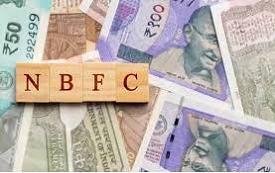
The Union Government has launched the Special Liquidity Scheme of Rs. 30,000 crore to improve the liquidity position for Non-Banking Finance Companies (NBFCs) and Housing Finance Companies (HFCs). The scheme was launched through a Special Purpose Vehicle in the form of SLS Trust set up by SBI Capital Markets Limited (SBICAP).
Reserve Bank of India will provide funds for the Scheme by subscribing to government guaranteed special securities issued by the Trust. The period of lending by the Trust will be for a period of up to 90 days.
2 - PhonePe partnered with ICICI Bank to launch UPI handle

Digital payments major PhonePe has partnered with ICICI Bank and launched UPI handle, @ibl. It had started with Yes Bank and was offering the '@ybl' handle. Collaboration with two banks will help PhonePe strengthen the overall service reliability and uptime of its Unified Payments Interface (UPI) offering.
PhonePe suffered a major outrage in March, when the Reserve Bank of India imposed a moratorium on Yes Bank, because of the private lender's poor financial health. UPI, developed by NPCI, is a real-time payment system that allows users to transfer money across multiple bank accounts, without sharing bank details.
3 - Swiggy launched its own digital wallet in partnership with ICICI Bank

Swiggy has launched its own digital wallet Swiggy Money in partnership with ICICI Bank. It will enable a single-click checkout experience for the customers on its platform. The full-fledged digital wallet will allow Swiggy customers to store money and be used for all food orders on Swiggy.
Swiggy Money is powered by ICICI Banks insta wallet service, which is built on a cloud platform with API integration. The new service is also claimed to enable instant refunds to customers.
4 - ADB becomes Observer for Network for Greening the Financial System

The Asian Development Bank (ADB) joined the Central Banks and Supervisors Network for Greening the Financial System (NGFS) as an observer. NGFS is a group of central banks and supervisors willing to share best practices and contribute to the development of environment and climate risk management in the financial sector, while mobilising mainstream finance to support the transition towards a sustainable economy.
ADBs inclusion to the NGFS is aligned with the goals in its corporate strategy, the Strategy 2030, particularly in tackling climate change, building climate and disaster resilience, and enhancing environmental sustainability.
5 - Cabinet approved capital infusion for the three Public Sector General Insurance Companies

The Union Cabinet approved the capital infusion for an overall value of Rs.12,450 crore in the three Public Sector General Insurance Companies (PSGICs) namely Oriental Insurance Company Limited (OICL), National Insurance Company Limited (NICL) and United India Insurance Company Limited (UIICL).
Out of 12,450 crores, Rs.3,475 crore will be released immediately, while the balance Rs. 6,475 crore will be infused later. Cabinet also approved increase in authorised share capital of NICL to Rs.7,500 crore and that of UIICL and OlCL to Rs. 5,000 crore respectively to give effect to the capital infusion.
6 - AIIB released $50 million loan to L&T Infrastructure Finance
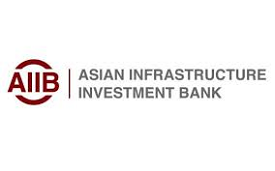
L&T Infrastructure Finance Company Ltd received the first tranche of $ 50 million of the total $ 100 million ECB loan from Asian Infrastructure Investment Bank (AIIB), a multilateral development bank, that invests in sustainable infrastructure. This development marks AIIBs first loan to a non-banking financial company (NBFC) in India.
The loan proceeds will be used to on-lend to large and mid-scale wind and solar power infrastructure projects in India. The proposed financing supports AIIB's Sustainable Energy for Asia Strategy and Strategy on Mobilising Private Capital for Infrastructure.
7 - IRDAI sets up panel to create Indian Pandemic Risk Pool

The Insurance Regulatory and Development Authority of India (IRDAI) plans to set up a pandemic risk pool in order to address various risks, which have been triggered by the Covid-19 pandemic and offer protection, in case of a similar crisis in the future. The nine-member committee will be headed by IRDAI Executive Director Suresh Mathur.
The committee will recommend the structure and operating model for the pool and submit its report within eight weeks. A risk pool is a form of risk management practiced by insurance companies.
8 - IRDAI permits corona Kavach Health Insurance Policies

Insurance Regulatory and Development Authority of India (IRDAI) has allowed 29 general and health insurers to launch short-term Corona Kavach' health insurance policies. The policy will cover medical expenses occurred due to coronavirus disease.
The sum insured amount of the policy ranges between fifty thousand rupees to five lakh rupees. The policy will also provide for any co-morbid condition triggered due to Covid-19 during the period of hospitalisation.
9 - CBDT launched new tool for banks to ascertain TDS applicability rates on cash withdrawals

The Central Board of Direct Taxes (CBDT) has launched a new Utility Tool to facilitate the Banks and Post Offices. It will help to calculate the TDS applicability rates on cash withdrawal of above 20 lakh in case of a non-filer of the income-tax return and that of above 1 Crore in case of a filer of the income-tax return.
Finance (No.2) Act, 2019 has inserted section 194N in the Income Tax Act to provide for levy of TDS at 2% on cash withdrawal exceeding 1 crore from a bank/post office account(s) subject to certain exceptions.
10 - NABARD launched development projects worth Rs. 44 lakhs in Andaman & Nicobar Islands
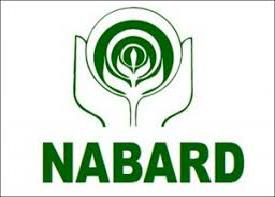
NABARD has launched development projects worth Rs. 44 lakhs in Andaman and Nicobar Islands, in order to strengthen the concept of Atmanirbhar Bharat through rural entrepreneurship. It includes the formation and development of Self-Help Groups, SHGs.
Skill development of SHGs members will be taken up to promote rural entrepreneurship at micro level. NABARD has also partnered with the Centre of Agriculture Research Institute (CARI) to conduct agricultural programmes with an amount of Rs. 20 lakh.
11 - NABARD organised its first Digital Choupal
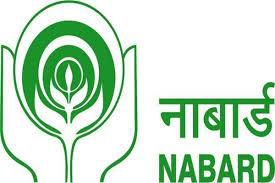
National Bank for Agriculture and Rural Development organised its first Digital Choupal to mark its 39th foundation day. Digital Choupal discussed seven projects based on rural livelihoods, empowering tribal communities, soil health is real health, direct marketing to urban consumers, climate resilience, climate proofing of koutuguda, and collectivisation of weavers.
NABARD assigned Rs. 5,000 crore of refinance scheme for banks and financial institutions and another Rs. 5,000 crore to transform Primary Agricultural Credit Societies (PACS) into multi service centres.
12 - Visa united with Federal Bank to launch Visa Secure

Visa Secure united with Federal Bank to launch Visa Secure to the banks customers and provides smoother and more consistent user experiences across multiple payment channels, including mobile, web, in-app, and connected devices. Visa Secure is based on latest standards of the EMV 3DS (3D Secure) protocol.
Federal bank will benefit on customer-centric digital solutions that make online shopping experiences seamless, while reducing customer friction at the point of purchase.
13 - Income Tax Department rolled out new Form 26AS
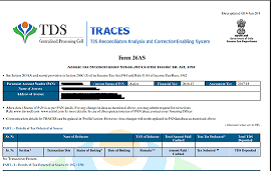
Income Tax Department has rolled out new Form 26AS with an aim to assist Tax payers in filing quick and correct Income Tax Return (ITR). The new form will carry some additional details on taxpayers financial transactions as specified in the Statement of Financial Transactions (SFTs) in various categories.
The additional details will facilitate voluntary compliance, tax accountability and ease of e-filing of returns. SFTs will handhold the taxpayers while filing their ITR. The new form will also calculate the correct tax liability based on these entries.
14 - CBDT inked MOU with MoMSME for sharing of data
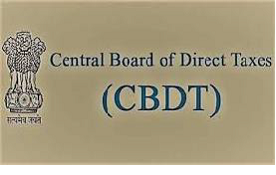
The Central Board of Direct Taxes (CBDT) signed a Memorandum of Understanding (MOU) with the Ministry of Micro, Small and Medium Enterprises. The MoU will facilitate seamless sharing of certain Income-tax Return (ITR) related information by the Income Tax Department to MoMSME.
The MoMSME will use the data to check and classify enterprises in Micro, Small and Medium categories. Both the organisations will appoint Nodal Officer and Alternate Nodal Officers to facilitate the process of data exchange.
15 - NOCI launched 'Autopay' feature on UPI for recurring payments

National Payment Corporation of India (NPCI) has launched the functionality of UPI AutoPay for recurring payments. With this new facility introduced under UPI 2.0, customers can now enable recurring e-mandate using any UPI application for recurring payments upto Rs. 2000. If the amount exceeds Rs. 2000, customers have to execute every mandate with UPI PIN.
UPI users can create e-mandate through UPI ID, QR scan or Intent. The UPI 2.0 offers features such as overdraft facility, one-time mandate, invoice in the inbox and signed intent & QR and foreign inward remittance among others to the customers.
16 - FamPay launched Indias first numberless card

Fintech startup FamPay has launched Indias first numberless card FamCard. FamCard is just like a debit card that teenagers can use to make payments independently, relieving parents of the trouble of giving them physical cash or their debit/credit card.
The card has been launched in partnership with IDFC Bank and is accepted across the RuPay payment network of merchants. FamPay aims to drive the smart generation of teens (Gen-Z) from cash to digital through a family-friendly app.
17 - Bank of Baroda launched Insta Click Savings Account
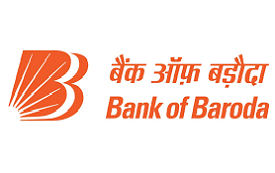
Bank of Baroda launched 'Insta Click Savings Account', a digital self-assisted online savings account, for all its customers, thereby offering digital banking comforts.
Features of the account are mentioned below:
It can be activated in real-time, which means the customer can start transacting, using the Baroda M Connect Plus application with the MPIN.
It offers a wide range of digital channels.
It uses a new form of digital KYC (know-your-customer) and Aadhaar-based OTP verification.
It has no minimum balance commitment.
18 - Airtel Payments Bank and NSDC united to train rural youth
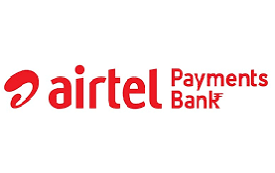
Airtel Payments Bank and National Skill Development Corporation (NSDC) united to skill youth in rural India and enable them to find employment opportunities within the financial services industry. The partnership aims to combine NSDCs rich experience, deep training infrastructure, and wide network with Airtel Payment Banks industry insights to design and conduct targeted skill development programs for rural youth.
Airtel Payments Bank will also conduct an awareness drive at NSDCs training centres. The partnership will also encourage skill trainees to become entrepreneurs.
19 - RBI estimates Gross NPA of banks to rise to 12.5% by March 2021

The Reserve Bank of India released the Financial Stability Report (FSR). According to the report, the gross non-performing assets (GNPA) ratio of the country's scheduled commercial banks (SCBs) may increase from 8.5% in March 2020 to 12.5% in March 2021. It also expected the ratio to go upto 14.7% under severe economic stress.
The report projected that public sector banks (PSBs) may see their GNPA ratio of 11.3% in March 2020 increase to 15.2% by March 2021 under the baseline scenario. The report suggested that the gross NPA ratio fell from 9.3% in September 2019 to 8.5% by March 2020.
20 - Special Insolvency Resolution Framework for MSMEs on advanced stage

In order to have ease of doing business, MSMEs announced to have a special insolvency resolution framework, currently at an advanced stage of preparation, under section 240A of the Insolvency and Bankruptcy Code (IBC).
The efforts are being made to speed up the processing of cases under IBC by having a provision for the pre-pack plan. The Code would consolidate good behaviour through its features that seek promoters and external resolution applicants to compete for a firms insolvency resolution.